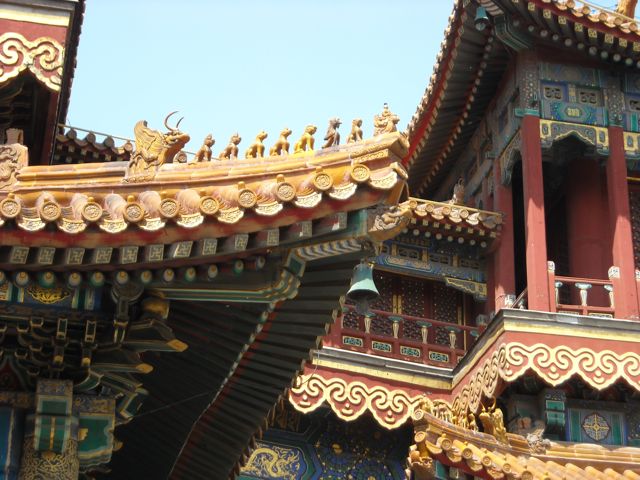
I have been in Beijing, China for about three weeks now as a visiting scholar at Renmin (the People’s) University, founded by Chairman Mao, and at the Chinese Academy of Social Sciences. I am comfortably housed in the Foreign Expert Building on the University campus, and get to bike around the leafy campus alongside many of future leaders of the Communist Party and of China itself. Without denying the real differences between West and East, it’s surprising how much is the same, even in the sphere of religion.
There is something surreal about a megacity of twenty million people becoming almost instantly modern, with skyscrapers everywhere, broad promenades, five-star hotels and the whole bit. What took American cities like Chicago and Atlanta a couple of centuries to develop has happened here in a couple of decades. International visitors are agape at the numbers and kinds of cars everywhere now—shiny new Audis, BMWs, Mercedes, Lexus, big Nissans, VW Passats—and the top power car, the sleek, black, tinted window Buick LaCrosse, from the GM plant in Shanghai. There’s KFC, Starbucks, McDonalds, Pizza Hut, and even Pappa John’s. Want upscale stuff? Gucci, Prada, Cartier . . . that’s all here too. Sarah Jessica Parker is on the newsstands, and posters of Kobe are at the basketball courts.
The scene in China also feels surreal because this nation is emphatically not capitalist; it is communist.
Ideologically, of course, the Middle Kingdom rejects the validity of religion while tolerating its practice as long as it is under the supervision of the government. There is no civic slogan here like “God bless America.” Nonetheless here’s another example of East-West parallelism, this one from the sphere of religion. It comes from a column in the Chinese press, reprinted in the China Daily just yesterday. One needs to understand first of all that Chinese education is examination-based, and an enormous amount rides on school entrance exams and a few other watershed exams along the way. One’s fate seems at these moments to hang in the balance. Naturally young students and their parents are stressed by how much is at stake in these events.
Intriguingly, there is always an uptick in prayerful visits to the local (usually Buddhist) temples prior to exams. I have seen this phenomenon myself first hand; a parent, usually the mother, with a school-age child, will hold incense sticks and reverently bow before the big Buddha statue, begging for success and a top score. Sometimes they will even pay a little extra to have the outcome predicted.
In the past the goal of the Chinese government has sometimes been to exterminate, or at the very least mock, such behavior as useless superstition. But yesterday in the Chinese press a columnist suggested that it would be unkind and insensitive to condemn such religious behavior. After all, these students and their families endure tremendous pressure at exam-time, and in these situations the practice of petitioning prayer can often provide some spiritual comfort and ease the build-up of mental strain. After a visit to the temple, the student can maybe relax a bit more and do better work. In other words, the religious practice may well have some positive therapeutic effects.
In the sophisticated West, the estimation of the value of religious practices like prayer is almost identical—tolerant, patronizing and skeptical. There really isn’t much difference at all. Religion is not really about what is true; it is about what is found to be therapeutic. Even in evangelical circles in the West one will often hear the claim that prayer doesn’t really change God or our circumstances; it is only designed to change us. My point is that prevailing views of religion on both sides of the Pacific are actually not so different.
2 Responses to Religion as Therapy in China